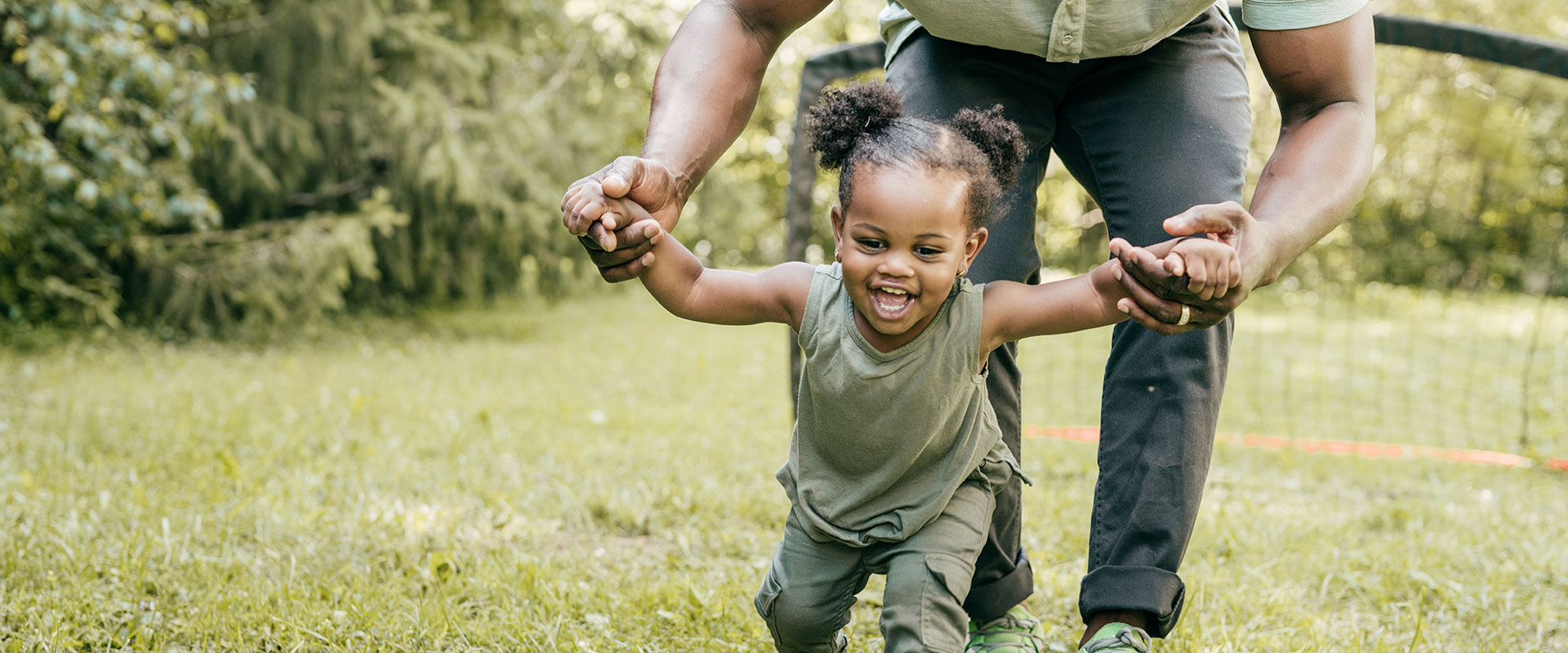Your Toddler’s Social-Emotional Milestones: What to Expect

Your toddler is learning more and more about themselves, others, and the world around them with every passing day. In fact, they are learning, absorbing and processing information with every encounter they share with the people around them! The daily discoveries your child makes through interacting with you, other children, siblings, adults, and their environment, all contribute toward key social-emotional developments and milestones.
It’s important to remember that just as every child is unique, so too is their environment and library of experiences. This means that every child will develop at different rates and on their own time. Here, we take a look at what milestones to expect and roughly when your child might hit them…
12-Month-Old Social-Emotional Milestones
- Has Favourite People and Favourite Things – As your child turns one, they might express a preference for people or things such as teddies and other toys.
- Begins to Play Social Games – Your child may start to enjoy social games such as ‘pat-a-cake’ or ‘peek-a-boo’.
- Cries When You Leave – Crying when you leave a room is typical of this age.
- Imitates Sounds or Movements – To get your attention, your child may imitate sounds they’ve heard or gestures they’ve seen.
- Shyness around Strangers – You might notice your child showing signs of shyness around others, especially strangers.
15-Month-Old Social-Emotional Milestones
- Shows Affection to Caregivers – At 15 months old, your toddler will likely start showing you more affection through hugs and kisses.
- Hugs Toys – Similarly, your child may start showing affection to their toys.
- Copies Other Children During Play – This may include copying another child by taking toys from a container, for example.
- Claps When Excited – Displaying a wider range of emotions means that your child may also clap when they’re excited.
- Begins to Explore Alone – Independence is growing, and your little explorer might be showing signs of wanting to discover more of their surroundings.
18-Month-Old Social-Emotional Milestones
- Tries New Things with Familiar Adults Close by – Your toddler may become more confident to try new things during play, for example, but still wants you or another familiar adult around to do so.
- Expresses Frustrations – At this age, your child’s speech is probably developing, but they may find it difficult to entirely communicate their wants and needs. This can lead to emotional outbursts and emotional meltdowns.
- Points Out What They Find Interesting – Your child is taking in new things every day and to show you what they’re interested in, may point this out.
- Pretend Play Games – Pretend games such as feeding a baby or talking on the telephone may begin to emerge.
- Helps You to Dress Them – This can involve holding out their arms to push their sleeve through or lifting up their foot to put bottoms on.
- Turns to You to Assess Reactions – To gauge new situations, your toddler might look at your face to see how you react first.
24-Month-Old Social-Emotional Milestones
- Increasing Independence – Also known as the “Me Do It” phase, you may find yourself in a tug of war between your expectations and your toddler’s newfound desire for independence.
- Self-Aware – Self-awareness is growing, and your toddler now recognises themselves as independent of others.
- Notices When Others Are Hurt – Your child may look sad when they realise others are hurt or upset.
- Shows Defiance – Around this time, your child might start doing things you told them not to.
30-Month-Old Social-Emotional Milestones
- Follows Basic Routines When Prompted – Basic routines such as “Time to put away your toys” can typically be followed by your toddler at this age.
- Plays Next to Other Children – As they become more aware of their peers, your child might begin playing next to other children, rather than have friendships just yet.
- Tells You What They’re Doing – At this stage, your child might start to say, “Look at me!” when showing you what they’re doing.
- May Make up Imaginary Friends – Children as young as 30 months old can start to make up imaginary friends, most of which will likely disappear around the age of eight years old.
- Has Established Their Place in the Family – Your toddler will probably know where they sit in the family and know what sex they are.
36-Month-Old Social-Emotional Milestones
- Friendship Formation – As early friendships develop, your toddler may start to show more affection towards them.
- Joins Other Children to Play – Your toddler will probably have previously played next to other children but as they reach 36 months, they may now notice them more and want to join them in play.
- Calm Down within 10 Minutes of You Leaving – During early toddlerhood, your child may find it more difficult and be more upset when you leave the room. By 36 months, they may be more accustomed to being separated.
- Turn Taking in Groups – When playing with friends, your child will likely be more aware of “rules” such as taking turns.
- Shows a Wide Range of Feelings – As well as showing their emotions through behaviours, children are gaining the verbal communication skills to express their feelings through words as well.
As you can see, your toddler’s journey through early years social-emotional milestones is an exciting one! Once again, it’s important to recognise that every child is unique and will develop at their own pace. This said, if you do have any concerns or questions regarding your toddler’s social-emotional development, we suggest contacting your health visitor for support.





